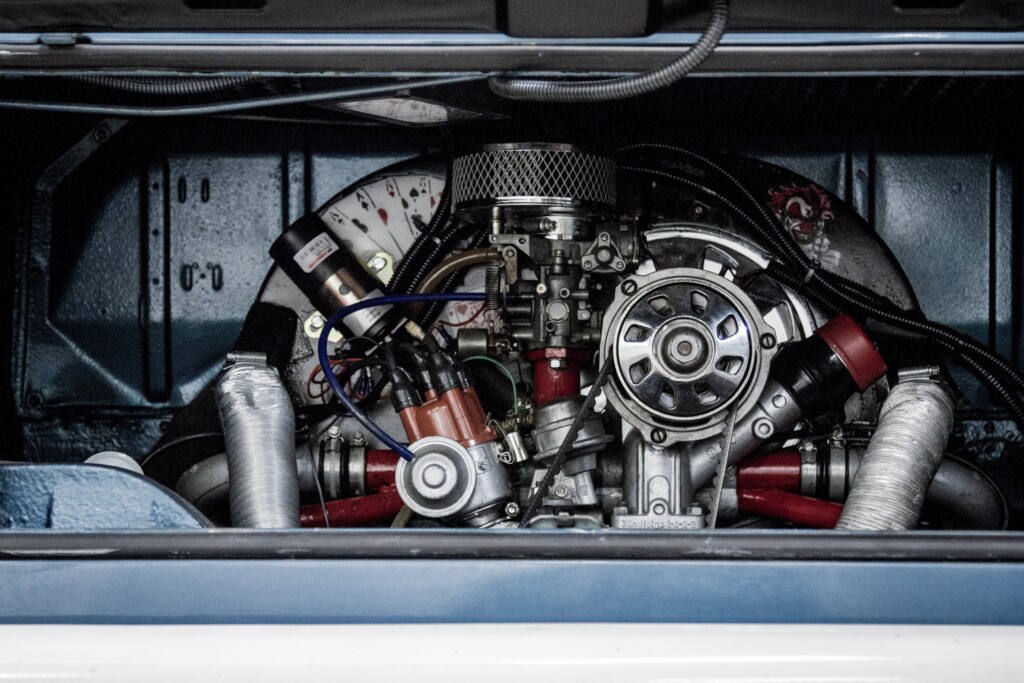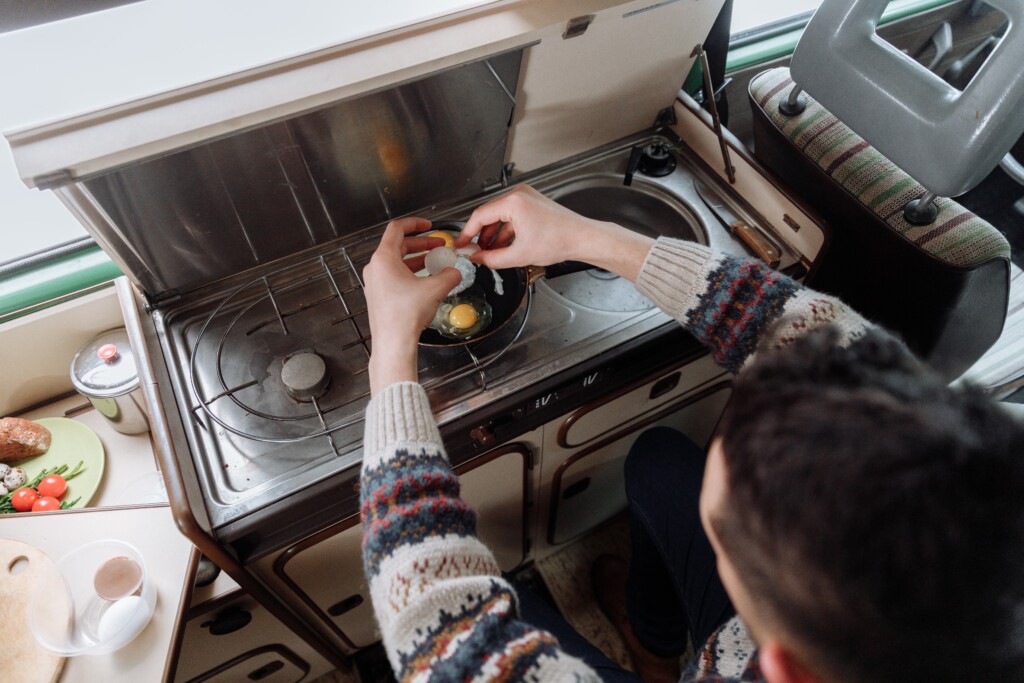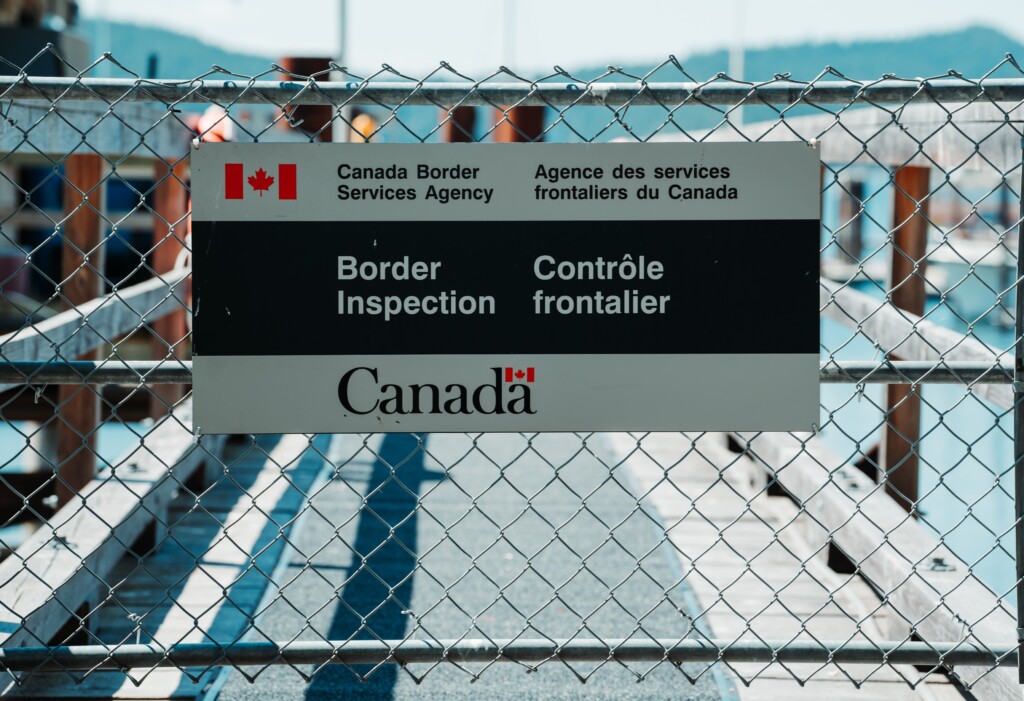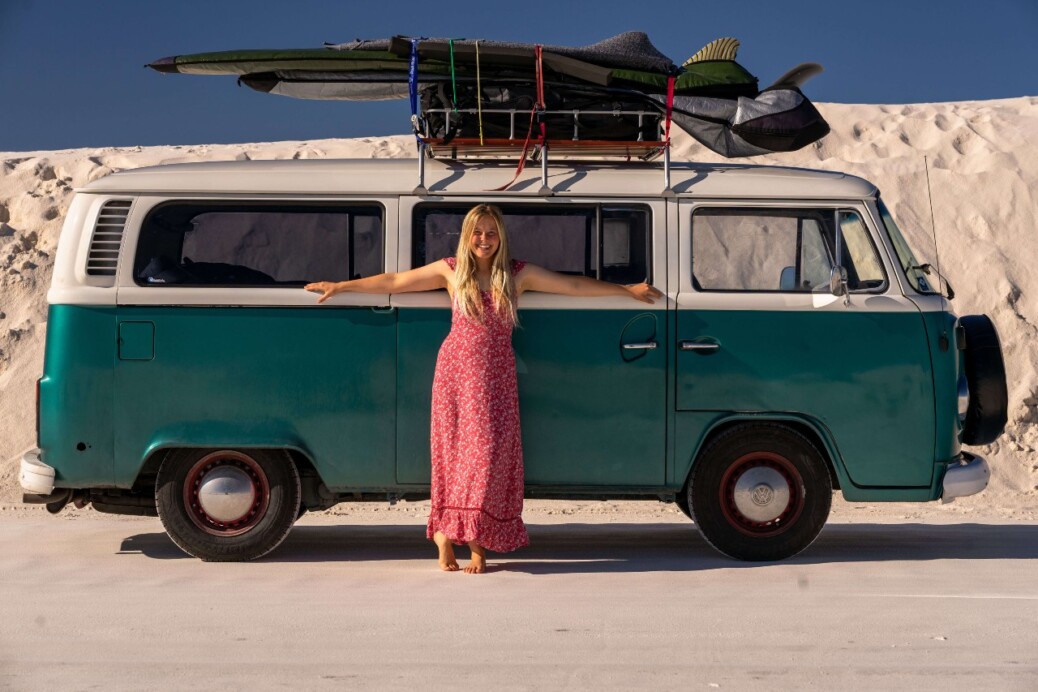What to know before you go on your Buslife adventures
So you’ve finally taken the plunge and bought a VW Bus, packed up all your belongings, and are raring to hit the open road and live out your Buslifers dream. Now, not to sound like your overprotective parents, BUT have you thoroughly thought it through? And no, we don’t mean ‘are you sure you don’t want to stay at home with us where it’s safe and comfortable?’. We mean: have you considered every practicality involved in traveling across a continent in a VW Bus and ticked off your pre-travel checklist?
You may have remembered to pack your hiking boots and filled up your fuel tank, but did you pack a high visibility vest and the correct gas adaptors? These are just two of many items you’ll need to ensure the road ahead is smooth and relaxed. Don’t forget though: there’s much more to preparation than just packing the right gear. But fear not — in this article, we have created a checklist of things to find out, do, and buy, in preparation for your adventure so there ain’t nothin’ that can stop you.
Check your VW’s health
This one may be obvious, but you’ll definitely be nagged about your VW’s condition by family and friends before you go away, so you may as well hear it from us first. After all, the last thing you want from your Buslife adventure is to break down — even if it is by a sun-soaked beach. So without further ado, here’s a bus safety checklist:
Review your latest vehicle inspection certificate:
Even if your VW Bus isn’t due a vehicle inspection before you go on your jolly, it’s wise to check it anyway. Depending on how long you plan to travel for, it may be due while you’re away. In this case, it’s worth renewing your vehicle inspection certificate early so you don’t have to worry about it further down the line. If you’re happy with the expiry date of your vehicle inspection certificate, take note of any advisories it lists. Scary comments like ‘Rear parking brake efficiency only just met’ indicate issues you could have during your trip. For peace of mind, it might be worth getting them taken care of regardless. Better safe than sorry, eh!



Check your tires:
Check each of your tires to make sure their tread is safely within the legal limit, and replace them if not. This isn’t something officials will check when moving through countries, but it will make driving that bit easier. It’s also important to fill your tires to the maximum air pressure, especially as not all roads allow you to glide like a skater on ice.
Servicing:
Most VW Buses have lived longer than their drivers these days. Although most of them are beautifully restored to full working order, they do require that extra bit of TLC. The best way to show them some love is by splashing out on a service. Again, this isn’t a pre-trip requirement, but if you look after it well, it will look after you too. If you deem servicing an unnecessary expense, at least oil her up and feed her some AdBlue before you go.
Remember, these are just the basic steps to checking you’re VW Bus is road-safe. However, you can never be too careful. For full peace of mind that your VW Bus won’t break down at the start line, read our article Buslife: Preparing Your Vehicle for the Road for a comprehensive guide on getting your bus ready for the road.
Got gas?
Spoiler alert: an essential part of surviving Buslife is eating food. Groundbreaking, we know. But whether you’re a self-proclaimed chef or an instant noodles kind of person, you’ll need gas to heat up your stove. However, it’s not as simple as picking up a cylinder or two from your local stockist. Availability, safety, and compatibility are key. To ensure you keep well fed on the road, remember these three essential points about traveling with a gas cylinder.
1) Types of gas
First of all, different countries sell different types of gas. For example, whilst mainland Europe exclusively sells propane, the UK primarily stocks butane. Just like petrol and diesel, you cannot mix different types of gas in the same cylinder. If you do, the cylinder won’t work sufficiently. To avoid this inconvenience, do your research on which type of gas will be required for the countries you plan to visit.
Once you are on your trip, you can find your rentable gas cylinders at gas stations, campsites, and other official suppliers for various brands of gas. Since gas bottles can be dangerous, all suppliers will ask for your full details and a signature to show you consent to being responsible for their safe use. Just bear in mind, if you plan on renting gas cylinders along your journey, you cannot take them out of the country you rented them in which, admittedly, can be annoying if you didn’t use your fill.



2) Gas safety regulations
Although it’s completely possible to fit your own gas cylinder and heating system without legally needing to have it certified, there are safety regulations that a number of countries require you to abide by. For example, in European countries, according to the R67 all gas cylinders must be secured in a fixed air-tight box with a drop vent. There’s also a limit on the capacity of gas you can carry, depending on the ventilation system in your bus. Now, it’s quite technical so we better leave it to the experts to give you the specifics. Read all the requirements here.
3) LPG gas cylinder adaptors and regulators
By now, your head may be spinning with all the rules and regulations that come with having a gas cylinder. But we do need to inform you of just one more thing. Ok, maybe two — sorry. Different regulators are used for different gas cylinders. So if you are planning to rent gas cylinders on your travels, ensure you have the corresponding regulators to hand. If you use a refillable gas cylinder, you only need one regulator, but multiple LPG cylinder adapters. The USA, UK, Spain, and other European countries all have different gas filling nozzles, and without the correct adapter, the gas pump will not fit on your cylinder and you will go hungry. Unless you REALLY like McDonald’s.
Essential adapters checklist: Acme, Dish, Bayonet, and Euro nozzle
As finding the right gas cylinders and components can be a faff, especially if you’re traveling to multiple countries, many Buslifers have switched to a refillable gas cylinder. One of the most popular refillable gas cylinders across the US and Europe is this Gaslow cylinder.
How is your internet connection?
You may be downsizing your life to the size of a VW Bus and preparing to live simply on the open road, but let’s face it: the internet is a must. How else can we keep in touch with home, share photos of our journey and plan our onward journey? After all, a trip through Arches National Park is suddenly not so cool when you realize you’re lost and have no cell service to find a way of escaping. Luckily, there are ways around it.



Unlimited data:
Most Buslifers rely on having unlimited data packages in the cell phone contract, which means they never have to worry about spending precious gigabytes on scrolling their way into a social media vortex. With unlimited data, it’s easy to tether your laptop to your cell phone to work and catch up on your favorite programs online. Try to find a phone contract that includes foreign countries on the data plan for free to avoid being charged for using data abroad.
Cell phone WiFi routers:
Cell phone signal can be a bit dippy, but there’s a solution to everything these days, isn’t there? A cell phone WiFi router will assist in speeding up your internet connection, and keeping it steady, even when you’re off-grid. There are routers available for both a battery and mains connection, at a pay-as-you-go or a monthly cost. Phew, no need to miss out on the season finale of that show you just haven’t been able to stop thinking about.
Outdoor signal booster:
If you’re planning on going rogue and venturing far into the mountains or deep into the desert, then a router might not cut it. For this occasion, you may wish to complete your internet set-up with an outdoor WiFi booster. It fits onto the side or top of your bus just like a little satellite dish to extend your signal range. They can be pricey, but if you’re working on the road, it might be a worthwhile investment.
Find more tips and tricks about How to Have Access to WiFi on the Road at All Times in this super useful guide.
Are there any travel restrictions to be aware of?
Visas:
As much as we may like to be, we are not technically citizens of the world. Our passports don’t exactly get us a free pass to every country we want to visit, and sometimes they don’t allow us entry at all. Therefore, before any journey, we have to consider the obstacles that might bar us from crossing into new lands. Yes, we are talking about visas. Even if you have traveled to a certain country visa-free before, it is worth checking you can do so again. After all, countries’ relationships are changeable and fickle at times.
Stay limits:
Another important factor to consider when planning out your dream trip across Pan-American Highway or the Alps Mountains is how long each country allows entry for. Do you have to toot on through Mexico in 30 days or can you take it slow and sling back mezcals with a mariachi band by the beach? Be aware that if officials see you have overstayed your welcome at the exit border, they have the power to ban you from coming back. Again, we don’t mean to sound like overbearing parents, but we just want what’s best for you (said every overbearing parent ever).



Covid-19 compliance:
Not sure if you’ve heard, but apparently we are living in unprecedented times thanks to a certain silent killer called Covid-19. Although vaccinations have been rolling out across the world for many months now, new varieties keep surfacing that unfortunately means the spread of the virus is not easy to control. And so even if you are vaccinated, you aren’t immune from spreading the virus or becoming ill, so be wary when you travel and respectfully follow the guidelines in place in the countries you travel to.
Many countries need proof of vaccination upon entry, and many more require negative tests in the follow-up to or upon entry. Without evidence of Covid-safety, you will not be permitted to enter any country. You can find a checklist for the individual guidelines for the countries you plan to visit relating to your nationality on your government website.
A country’s safety:
And finally, every parent’s favorite topic: danger. While much of the time their concern for our safety is annoyingly irrational, sometimes a civil war, natural disaster, or deadly virus in a country you plan to visit is a valid reason to steer clear. Everyone has an ‘it won’t happen to me’ attitude — until it does. The good news is it is easy to find out which countries are not safe for tourists on your government’s Travel Advisories list.
Before you go don’t forget:
Ok now the serious stuff is out of the way, there’s nothing left to do except ask: are you sure you’ve got everything? Above are the fundamental things that will ensure your travels are not just smooth but also safe and legal. But before you go, there are just a few other things to tick off your checklist.
Motorhome emergency safety kit:
Regardless of it being a legal requirement in the countries you visit, an emergency safety kit is always a smart investment. They include a fire extinguisher, fire blanket, first aid kit, torch, reflective triangle, a high visibility jacket, and other safety items that just make sense to carry.
Accessing money abroad:
Remember to notify your bank when you are going abroad so they don’t block your debit or credit cards due to suspicious activity. It might also be worth looking into an international bank card that allows you to withdraw and transfer money internationally for free or for a very small fee.
Insurance and breakdown cover:
Make sure the insurance and breakdown cover you buy actually covers the countries you are traveling to, the distance you plan to travel, and the length of time you plan to stay abroad. And if you haven’t even got insurance yet, stop reading this, put your coffee down, and get on it.
Weigh your VW Bus:
VW Buses are pretty compact, but certain countries do have weight restrictions on leisure vehicles entering their country. Therefore, it is a good idea to get your bus weighed, or at least make a good estimate of its weight. There’s nothing like gliding through a border knowing you came prepared.
Download useful travel apps:
From apps that show you secret parking spots in the middle of nature (like iOverlander) to ones that show you where to find the next LPG filling station (like myLPG.eu), technology has made traveling almost too easy. Do your research on the best travel apps to download — there are so many created for Buslifers like us. Our article, Must-Have Apps for Buslifers, is a good place to start!
Stock up on your favorite snacks:
Once you set off on your trip, who knows the next time you will be able to enjoy the sweet foamy taste of Twinkies or the smooth and salty taste of Reese’s Peanut Butter Cups. If you just can’t imagine life without them, fill your Bus to the brim. As long as the driver’s seat is clear, all is well. Just kidding. Be sure to check food and drink restrictions in countries you plan on driving through. You wouldn’t want to have to say goodbye to them at the border.
Join the Buslifers community:
Finally, there’s nothing better you can do to prepare for an exciting Buslife adventure than meeting an online community of Buslifers that can support you, advise you, and even become lifelong travel buddies along the way. So join our crew of VW Bus ambassadors for access to an exceptionally loving and supportive community today!



[…] For more top tips on living your best Buslife, check out our ultimate Buslife Travel Checklist. […]
[…] Carbon monoxide poisoning is a heavy subject that, if we’re honest, we would rather not have to think about. However, it’s hard to ignore just how life-threatening CO really is. So, we hope this article has raised awareness about the dangers of the compound and encouraged you to manage it if you haven’t already. The safer and more secure our VW Buses are, the more we can enjoy the freedom and adventure they provide. This is but one thing to remember before heading out on a roadtrip. See our full checklist here. […]